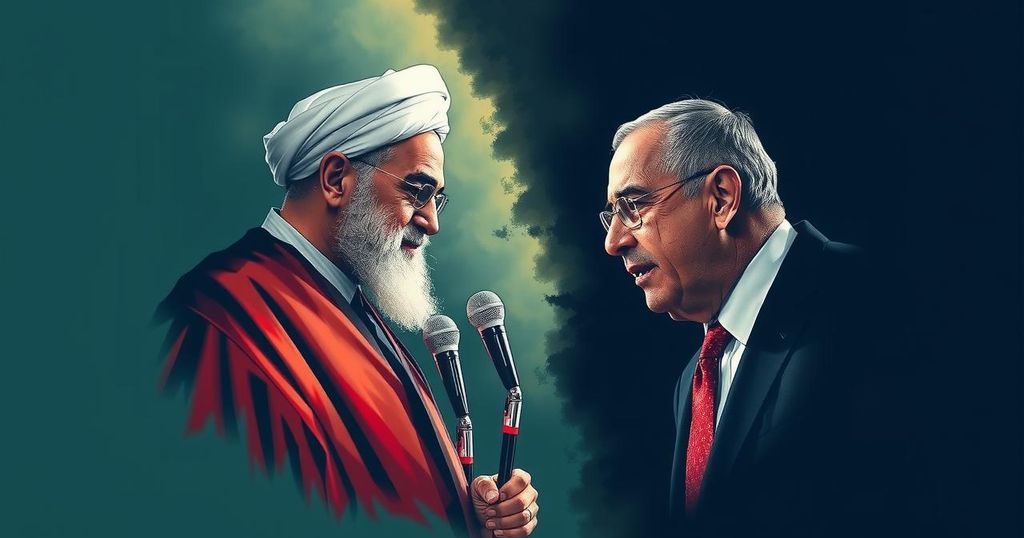Biden Sees Potential to Mitigate Iran-Israel Hostilities Amid Ongoing Gaza Conflict

President Joe Biden expressed cautious optimism about easing tensions between Iran and Israel while acknowledging the difficulties in achieving a ceasefire in Gaza. He stated there may be opportunities to stabilize the conflict with Iran but indicated that ongoing military actions in Gaza significantly reduce the likelihood of an immediate ceasefire. Biden’s comments follow substantial military engagements and humanitarian crises engulfing the region, revealing the complexities of U.S. foreign policy amidst these challenges.
United States President Joe Biden has articulated a cautious optimism regarding the potential to mitigate hostilities between Iran and Israel, while expressing greater reservations about the likelihood of achieving a ceasefire in Gaza. During a press briefing in Berlin, where he convened with leaders from Germany, France, and the United Kingdom, President Biden highlighted the complexities inherent in the multifaceted conflicts permeating the Middle East. He stated, “There’s an opportunity in my view – and my colleagues agree – that we can probably deal with Israel and Iran in a way that ends the conflict for a while. In other words, it stops the back and forth.” Biden’s remarks suggest a potential shift in U.S. policy, particularly following the State Department’s recent indication that it no longer seeks a ceasefire between Hezbollah and Israel, in light of Hezbollah’s diminished position following the recent assassinations of several of its leaders. Notably, Israel is reportedly preparing for military action against Iran in response to rocket attacks that Tehran conducted against Israeli military targets following the death of Hamas’ chief, Ismail Haniyeh. The president affirmed he is aware of the timeline and nature of Israel’s potential responses but refrained from disclosing further details. Historically, President Biden has opposed Israeli military actions targeting Iran’s nuclear or oil facilities, acknowledging the geopolitical and economic repercussions such strikes could precipitate, including rising global oil prices that would adversely affect U.S. consumers. In relation to Gaza, Biden acknowledged that the prospect of a ceasefire is less feasible, especially after Israel’s recent strike that resulted in the death of Hamas leader Yahya Sinwar. He remarked, “We think that there’s a possibility of working for a ceasefire in Lebanon… it’s going to be harder in Gaza, but we agree that there has to be an outcome – what happens the day after?” This statement comes amid the ongoing humanitarian crisis in Gaza, wherein more than 42,500 Palestinians have lost their lives as a result of continuous Israeli air and ground assaults. Despite calls for restraint, the U.S. has supported Israel’s military operations in Lebanon while cautioning against the expansion of the conflict. Hezbollah has publicly asserted its capacity to inflict significant casualties among Israeli forces and has escalated its rocket attacks deep into Israeli territory. The group announced its intention to enter a new “escalatory phase” soon, indicating further military operations in the region.
The ongoing tensions between Iran and Israel are manifesting in various military engagements, exacerbated by recent escalations following the assassinations of key figures within Hezbollah and Hamas. The area’s geopolitical landscape remains highly volatile, especially with the U.S. as an ally of Israel, providing substantial military support amidst accusations of serious humanitarian violations in Gaza. President Biden’s comments reflect an urgent diplomatic balancing act as the U.S. seeks to navigate these multifaceted conflicts to prevent a broader regional war.
In conclusion, President Biden’s statements reveal a complex and nuanced approach to the challenges posed by Iran-Israel hostilities and the Gaza Conflict. While there seems to be a possibility for engaging Iran in a dialogue aimed at reducing tensions, the situation in Gaza appears more complicated, with current military actions hindering immediate prospects for peace. The U.S. continues to face significant political and ethical dilemmas as it supports Israel amidst widespread humanitarian concerns.
Original Source: www.aljazeera.com








